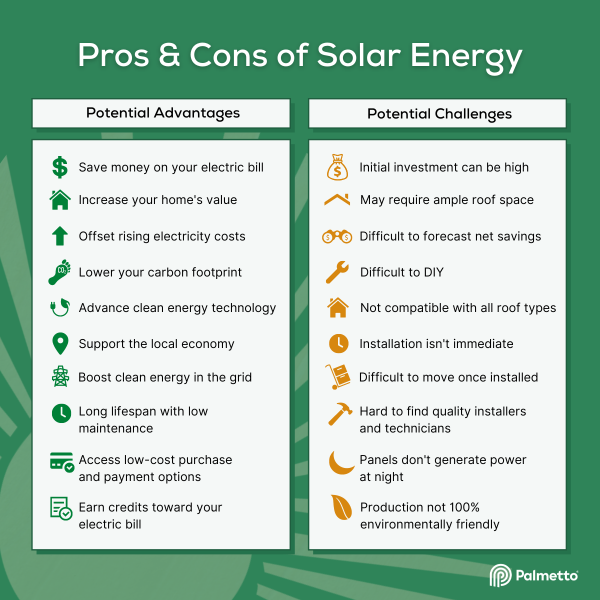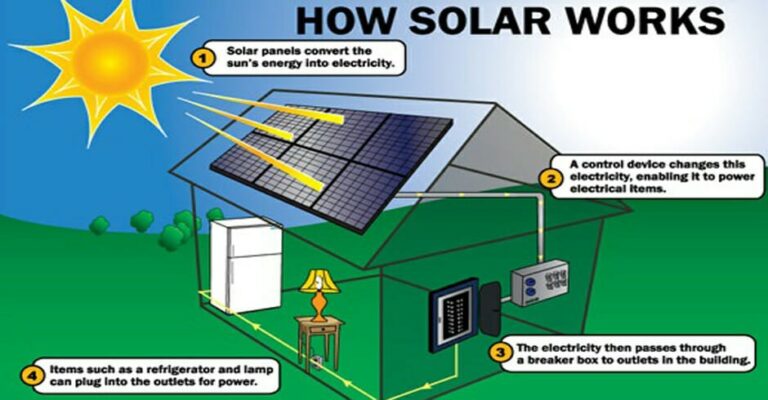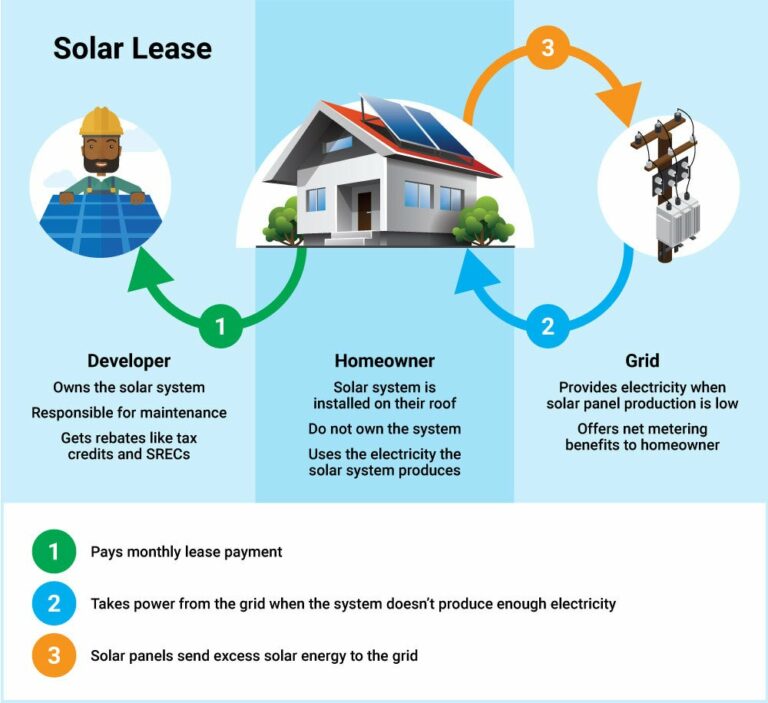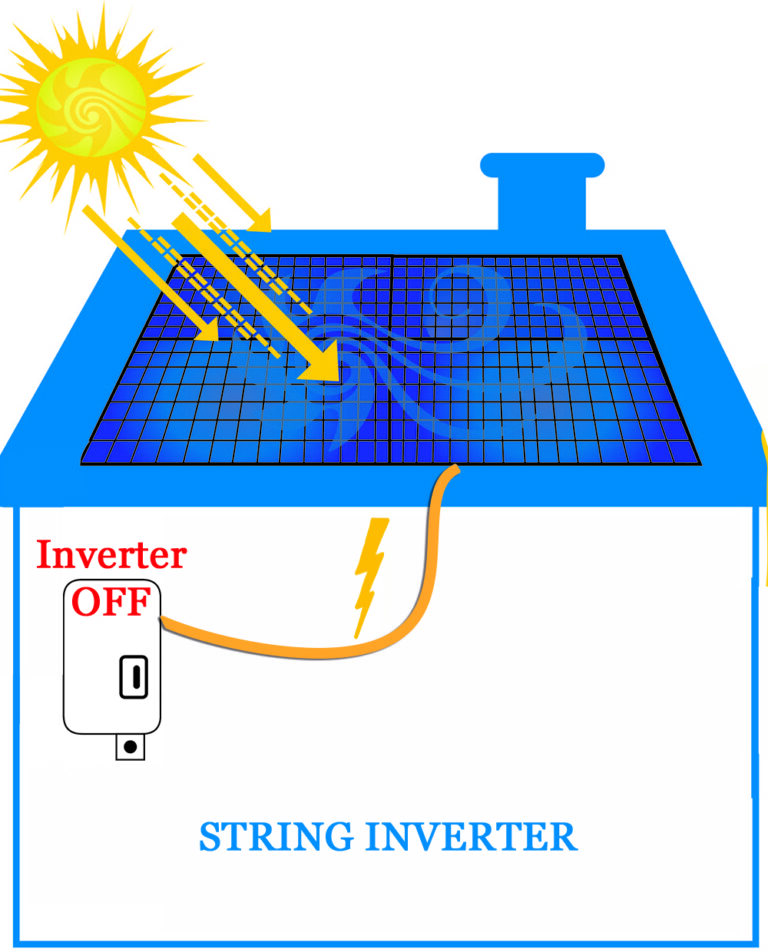What Are The Advantages Of Solar Energy?
Looking to learn about the advantages of solar energy? You’ve come to the right place! Solar energy is a renewable source that harnesses the power of the sun to generate electricity. It’s not only good for the environment, but it also offers a wide range of benefits for everyday life.
So, what makes solar energy so great? First, let’s talk about its incredible cost-saving potential. Solar panels allow you to generate your own electricity, which means lower energy bills and long-term savings. Plus, with advancements in technology, the cost of solar panels has significantly decreased, making it more accessible for homeowners and businesses alike.
The advantages don’t stop there! Solar energy is clean and green, meaning it doesn’t produce harmful emissions that contribute to air pollution and climate change. By choosing solar power, you’re helping to reduce your carbon footprint and create a healthier planet for future generations. With solar energy, you can enjoy the benefits of renewable power while making a positive impact on the environment.

The Advantages of Solar Energy: Harnessing the Power of the Sun
Solar energy is a renewable and sustainable source of power that has gained immense popularity in recent years. As societies become more environmentally conscious and seek alternative energy solutions, solar power has emerged as a clean and efficient option. This article will explore the various advantages that solar energy offers, from environmental benefits to long-term cost savings. Whether you are considering installing solar panels on your home or simply want to understand the positive impact of solar energy, read on to discover the advantages of harnessing the power of the sun.
1. Renewable and Sustainable Energy Source
Solar energy is derived from the sun, which means it is an infinitely renewable resource. The sun’s rays are available every day, making solar power a sustainable source of energy. Unlike fossil fuels such as coal, oil, and natural gas, solar energy does not deplete the Earth’s natural resources. By harnessing solar power, we can reduce our reliance on finite resources and create a cleaner and greener future.
In addition to being renewable, solar energy is also a clean source of power. Solar panels convert sunlight into electricity using photovoltaic (PV) cells. Unlike traditional forms of energy generation, solar power does not release harmful greenhouse gases or pollutants into the atmosphere. By transitioning to solar energy, we can significantly reduce our carbon footprint and mitigate the effects of climate change.
The abundance of solar energy is another advantage. The sun radiates an enormous amount of energy, providing an almost limitless source of power. According to the U.S. Department of Energy, the sunlight that reaches Earth’s surface in just one hour could meet global energy demand for an entire year. By tapping into this vast resource, we can ensure a more sustainable energy future for generations to come.
2. Cost Savings and Energy Independence
One of the most compelling advantages of solar energy is the potential for cost savings. While installing solar panels requires an upfront investment, the long-term financial benefits can be significant. Once installed, solar panels generate electricity at no additional cost (beyond maintenance and occasional repairs). This can result in substantial savings on monthly energy bills, especially in areas with high electricity rates.
Moreover, solar panels offer homeowners a degree of energy independence. By producing their own electricity, individuals and households can reduce their reliance on the traditional power grid. This is particularly advantageous in remote or off-grid locations, where extending power lines from the grid can be costly and inefficient. With solar energy, individuals and communities can become self-sufficient and resilient, even during power outages or emergencies.
In addition to reducing electricity costs, solar energy systems often come with financial incentives and tax credits. Many governments and utility companies offer rebates and subsidies to encourage the adoption of solar power. These financial incentives can offset the initial installation costs and accelerate the return on investment. Furthermore, solar panels can increase the value of a property, making them an attractive option for homeowners looking to invest in renewable energy.
3. Job Creation and Economic Growth
The shift towards solar energy has the potential to drive economic growth and create new job opportunities. As the demand for solar panels and related technologies increases, so does the need for skilled workers in the solar industry. From manufacturing and installation to maintenance and research, the solar sector provides a range of employment opportunities.
According to a report by the International Renewable Energy Agency (IRENA), the solar industry employed over 3.8 million people worldwide in 2019. This number is expected to rise in the coming years as countries invest in renewable energy infrastructure and policies. The expansion of the solar industry not only creates jobs but also stimulates economic growth by attracting investments and fostering innovation.
Solar energy also offers benefits to local communities and businesses. Solar farms and installations can provide a source of income for landowners by leasing their land for solar projects. Additionally, solar power can stabilize energy costs for businesses, allowing them to allocate resources to other areas of growth. By embracing solar energy, communities and businesses can contribute to a more sustainable and prosperous future.
4. Versatility and Adaptability
Solar energy systems can be adapted and deployed in a variety of settings, making them a versatile energy solution. From individual homes and commercial buildings to large-scale solar farms, solar panels can be installed virtually anywhere there is access to sunlight. This adaptability and scalability make solar energy suitable for both urban and rural areas, addressing diverse energy needs.
Off-grid communities and remote locations can benefit significantly from solar energy. By installing solar panels and battery storage systems, these areas can have access to reliable electricity without the need for expensive and environmentally damaging infrastructure. Solar-powered water pumps and lighting systems can also improve living conditions in areas with limited access to essential resources.
Furthermore, solar energy can be integrated into existing structures and infrastructures. Solar panels can be installed on rooftops, facades, and even windows, maximizing available space and reducing the need for dedicated land areas. This integration allows for seamless incorporation of solar power into our daily lives and reduces the visual impact of solar installations.
5. Environmental Benefits and a Greener Future
The environmental benefits of solar energy are vast and far-reaching. By shifting towards solar power, we can significantly reduce our carbon footprint and combat climate change. The generation of electricity from fossil fuels releases greenhouse gases into the atmosphere, leading to global warming and climate-related issues. Solar power, on the other hand, generates electricity with zero emissions, minimizing the negative impact on the environment.
In addition to reducing greenhouse gas emissions, solar energy also helps to improve air quality. Traditional power generation methods, such as burning coal or natural gas, release pollutants that contribute to respiratory problems and other health issues. By switching to solar energy, we can mitigate these harmful effects and create a healthier living environment for ourselves and future generations.
Solar energy also conserves water resources, which is crucial in regions experiencing water scarcity. Traditional power plants require vast amounts of water for cooling purposes. Solar panels, however, do not require water to generate electricity. By opting for solar power, we can reduce the strain on water resources and preserve this precious commodity.
Finally, solar energy promotes biodiversity and protects ecosystems. Unlike fossil fuel extraction, solar power generation does not involve destructive practices that harm wildlife and their habitats. Solar installations can coexist with agricultural activities, allowing land to be used for multiple purposes. By embracing solar energy, we can advance towards a more sustainable and greener future for all living beings on Earth.
Concluding Remarks:
Solar energy offers numerous advantages that make it an attractive option for a sustainable future. From its renewable and sustainable nature to cost savings and job creation, solar power provides a range of benefits for individuals, communities, and the environment. By harnessing the power of the sun, we can reduce our reliance on fossil fuels, mitigate climate change, and create a greener and healthier planet for generations to come. Whether it is at the individual level or on a larger scale, embracing solar energy is a pivotal step towards a sustainable and resilient future. Let’s continue to explore and invest in solar energy for a brighter tomorrow.
Key Takeaways: What are the advantages of solar energy?
- Solar energy is a renewable source of power.
- It helps reduce carbon emissions, making it environmentally friendly.
- Solar panels require minimal maintenance and have a long lifespan.
- Solar energy can save you money on electricity bills in the long run.
- Solar power can be harnessed anywhere the sun shines, providing energy access to remote areas.
Frequently Asked Questions
Solar energy has gained popularity as a renewable energy source. It harnesses the power of the sun to generate electricity and provides several advantages. Here are some common questions about solar energy and their answers.
1. How can solar energy save me money?
Solar energy can save you money in multiple ways. Firstly, installing solar panels reduces your dependence on electricity from the grid, which means you can significantly lower your monthly utility bills. Secondly, many governments offer incentives such as tax credits or rebates for installing solar energy systems, further reducing your upfront costs. Finally, solar panels have a long lifespan and require minimal maintenance, resulting in lower long-term expenses compared to traditional energy sources.
By investing in solar energy, you can generate your own electricity and protect yourself from rising energy costs, while also making a positive impact on the environment.
2. Is solar energy good for the environment?
Yes, solar energy is excellent for the environment. Unlike fossil fuel-based energy sources, solar power does not emit greenhouse gases during operation, reducing carbon footprints and the negative impact on climate change. Solar panels also require minimal water for maintenance compared to fossil fuel power plants, conserving this valuable resource. Additionally, solar energy production does not produce noise pollution or contribute to air pollution, improving the overall quality of the environment.
By switching to solar energy, you can play an active role in reducing harmful emissions and preserving our planet for future generations.
3. What about solar energy reliability?
Solar energy systems have become more reliable over the years. While it is true that solar panels cannot generate electricity during nighttime or cloudy days, the advancements in battery storage technology have greatly improved solar energy reliability. Energy storage systems, such as solar batteries, allow excess solar power generated during the day to be stored and used when the sun is not shining. This ensures a constant supply of electricity, reducing the reliance on the grid.
Furthermore, modern monitoring systems help identify any issues with the solar panels or system performance, allowing for timely maintenance and maximizing overall reliability.
4. Can solar energy be used in all locations?
Solar energy can be used in almost every location around the world. While the sunniest regions generally have the highest solar energy potential, advancements in solar technology have made it possible to harness solar power even in areas with less sunshine. Moreover, the orientation and tilt of solar panels can be adjusted to maximize energy production, regardless of geographical location.
It’s important to assess the solar potential of your specific location, taking into account factors such as the amount of sunlight, shading, and available roof space. Consulting with a solar energy professional can help determine the feasibility of solar energy in your area.
5. Are there any advantages of solar energy for businesses?
Absolutely! There are numerous advantages of solar energy for businesses. Firstly, installing solar panels can significantly reduce operating costs by lowering monthly energy bills. This allows businesses to allocate more resources to other areas, such as expansion or improving products and services. Additionally, commercial solar installations can provide a strong market differentiator, demonstrating a company’s commitment to sustainability and attracting environmentally-conscious customers.
Furthermore, businesses that utilize solar energy may be eligible for various incentives and tax benefits, further enhancing the financial advantages. Lastly, solar energy can help businesses reduce their carbon footprint, contributing to a positive brand image and helping them meet sustainability goals.
Summary
Solar energy has many advantages. It’s clean, renewable, and doesn’t produce harmful emissions. Solar panels are becoming more affordable and can save money on electricity bills. Solar energy also creates jobs and helps reduce our dependence on fossil fuels. It’s a great way to power our homes and protect the environment.




